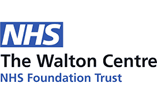Overview
Welcome to the RESTART tICrH website
RESTART tICrH - A Randomised Trial of Timing to Restart Direct Oral Anticoagulants after Traumatic Intracranial Haemorrhage.
Randomised patients
Target patients
1084
Open sites
20
Target Sites
20
RESTART tICrH is a multi-site, randomised controlled study. The overall aim of this study is to compare the clinical effectiveness of restarting/starting DOAC earlier (1 week) versus later (4 weeks) following tICrH.
The trial is funded by the National Institute for Health Research's Health Technology Assessment Programme (NIHR HTA) and is sponsored by The Walton Centre NHS Foundation Trust. The day-to-day running of the trial, monitoring and analysis is being coordinated by a team at the Liverpool Clinical Trials Centre (LCTC).
Information for Patients
Participant Information
If you are interested in finding more out about the trial as a potential participant please read this brief participant letter.
If you would like detailed information about the trial then you can also review the full Patient Information Sheets.
- Adult Patient Information Sheet (PIS)
- Personal Legal Patient Information Sheet (PIS)
- Professional Legal Patient Information Sheet (PIS)
Patient Video
Study Summary
Why are we doing the RESTART tICrH study?
Older people falling from a standing height is the most common cause of hospital admission for head injury. Up to 1 in 3 patients admitted are taking a tablet medication which thins the blood, known as an oral anticoagulant. This type of medication can increase the likelihood of bleeding in the brain. Many patients are taking oral anticoagulation due to having an irregular heartbeat (called atrial fibrillation) or because of having a previous stroke or blood clots. When a scan shows blood in the brain, oral anticoagulation is nearly always stopped. However, this leaves the question of when it is safe to restart them. The risk of making the bleeding in the brain worse must be balanced against the risk of having a stroke or blood clots.
There is no clear evidence on the safest time to restart oral anticoagulation, but most neurosurgeons advise restarting them 1-4 weeks after head injury. The number of people who have a bleed on their brain after a head injury is increasing and further brain bleeding or a stroke can have a serious effect on patients' lives and their on-going healthcare needs. Public and patient groups have highlighted that many patients want to stop taking oral anticoagulation after a bleed but they may be unaware of the vital importance of restarting this medication to prevent strokes and blood clots. The most popular oral anticoagulation prescribed has changed in recent years from warfarin to newer medications called Direct Oral Anti-Coagulants (DOACs).
The main purpose of the trial is to determine when the most beneficial time for people to start or restart a DOAC after their head injury is.
Participants will be assigned at random to start their DOAC medication:
- 1. One week after their head injury
- or
- 2. Four weeks after their head injury
Participants will be reminded when it is time to start or restart their DOAC (at 1 or 4 weeks) and will be followed up regularly for 6 months.
Who may be eligible?
Adults with a traumatic intracranial haemorrhage (tICrH) who are taking oral anticoagulants (OAC)
How can I find out more about this study?
If you think you may be eligible and would like to find out more about the study, you can enquire about the trial at your local hospital. If you want to find out more about the study but are not seeking to take part, contact restart.trial@liverpool.ac.uk
Recruiting Sites
RESTART tICrH is being run in a number of hospitals around the UK.
Open sites
- The Walton Centre NHS Foundation Trust
- University Hospitals Plymouth NHS Trust
- Aberdeen Royal Infirmary NHS Grampian
- NHS Tayside Dundee
- Northern Care Alliance NHS Foundation Trust
- Liverpool University Hospitals NHS Foundation Trust – Aintree Hospital
- University Hospital Southampton NHS Foundation Trust
- St. George's University Hospitals NHS Foundation Trust
- Cardiff and Vale University Health Board
- NHS Lothian Edinburgh
- Oxford University Hospitals NHS Foundation Trust
- Liverpool University Hospitals NHS Foundation Trust – Royal Liverpool
- Cambridge University Hospitals NHS Foundation Trust
- NHS Greater Glasgow and Clyde
- Leeds Teaching Hospitals NHS Trust
- South Tees Hospitals NHS Foundation Trust
- North Bristol NHS Trust
- Imperial College Healthcare NHS Trust
- University Hospitals of North Midlands NHS Trust
- Luton and Dunstable Hospital
Planned sites
- Barts Health NHS Trust
- University Hospitals Birmingham NHS Foundation Trust
- University Hospitals Sussex NHS Foundation Trust
- Torbay and South Devon NHS Foundation Trust
- University Hospitals Coventry and Warwickshire NHS Trust
- University Hospitals of Leicester NHS Trust
- Calderdale and Huddersfield NHS Foundation Trust
- Mersey and West Lancashire Teaching Hospitals NHS Trust – Whiston Hospital
- Royal Cornwall Hospitals NHS Trust
Sites map
Information for Sites/Clinicians
Patient Inclusion Criteria
- 1. Informed consent obtained from participant / participants’ legal representative and ability to comply with the requirements of the trial
- 2. Adult ≥18 years with traumatic intracranial haemorrhage (tICrH) in the past 1 week who were taking oral anticoagulants (OAC) prior to admission (Oral anticoagulants include any DOAC or Vitamin K antagonist (e.g. Warfarin), prescribed for atrial fibrillation (AF) or venous thromboembolism (VTE) prior to admission for tICrH)
Patient Exclusion Criteria
- 1. Patients whose traumatic intracranial haemorrhage is a chronic subdural haematoma only
- 2. Patients with a mechanical heart valve
- 3. Patients with a plan to start/restart anti-platelet therapy within 12 weeks of tICrH
- 4. Abbreviated Injury Scale other than head with a score >3
- 5. Pregnant or nursing female
- 6. For participants of reproductive potential (males and females), not willing to use of a reliable means of contraception*
- 7. Participants with a hypersensitivity or contraindication to Direct Oral Anticoagulant (DOAC) as detailed in each IMP SmPC
- 8. Participant with bleeding where it would be unsafe to restart DOAC at 1 week
- 9. Participant with clinical reason to restart DOAC before 4 weeks or complete within 12 weeks
- 10. Indication to stay on VKA (Warfarin) rather than switching to DOAC (e.g. severe renal impairment)
Meet Our Team

Miss Catherine McMahon
Chief investigator and Consultant Neurosurgeon

Prof Michael Jenkinson
Co-Chief Investigator and Neurosurgeon

Miss Ellie Edlmann
Lead Co-Applicant and Neurosurgeon

Prof Gregory Lip
Coagulation lead and Clinical Cardiologist

Dr Victoria Haunton
Associate Professor Geriatric Medicine, University of Plymouth

Prof Dyfrig Hughes
Professor of Pharmacoeconomics at Bangor University

Dr Yankier Pijeira Perez
Health Economics researcher at Bangor University

Prof Deirdre Lane
Qualitative lead and expert on Atrial Fibrillation

Dr Terence McLoughlin
Emergency Medicine Consultant and Royal Liverpool PI

Laura Wright
RESTART Trial Manager, Liverpool Clinical Trial Centre
Ben Hardwick
Senior Trial Manager and Team Leader, Liverpool Clinical Trial Centre

Michaela Brown
Speciality Lead Statistician, Liverpool Clinical Trial Centre

Matthew Gornall
Trial Statistician, Liverpool Clinical Trial Centre

Nic Vine
Patient and Public Involvement and Engagement Representative

Helen Grantham
Patient and Public Involvement and Engagement Representative
Study funder
National Institute for Health and Care Research Health Technology Assessment Programme (NIHR HTA) (NIHR152506)
Study Organiser
Liverpool Clinical Trials Centre (LCTC), part of University of Liverpool
Study review and approval
The study has been reviewed by the Berkshire Research Ethics Committee, who have agreed that the study is being conducted in a correct and appropriate manner. The study has also been approved by the Medicines and Healthcare Products Regulatory Agency (MHRA).
Key Contacts and Links
For further information about RESTART tICrH, please contact:
Address
Liverpool Clinical Trials CentreBlock C, Waterhouse Building
Brownlow Street
Liverpool
L69 3GL
Telephone
0151 795 0600








